
Vegan Sex
It's not enough to just think about reducing plastic cups and straws. We need to think about how we live on a more global level. Much of what we use is disposable, so we must be mindful of our choices.
Being a conscious consumer means making the best choice.
A person who embraces a non-violent worldview applies the principles of veganism in all areas of life. While food is clear, things get complicated when it comes to sex products. Any dedicated vegan knows that issues around sex can lead to many unexpected problems. The main difficulty is that manufacturers often don’t list the full ingredient list or testing policies on the packaging. Asking a salesperson in the store to help clear up the confusion often leads to blank stares from staff who are also unsure about poorly labeled products.

Fortunately, sex itself does not harm the environment.
And there are great options on the market that are of good quality, eco-friendly, and ethical—ranging from clean intimate lubricants to sex toys.
So, let's embark on the path of ethical sex!
First, I want to state my opinion: with a new partner, it's always better to have protected sex with a condom, even if that condom doesn't meet your ethical standards. Today, it is the only way to protect yourself and your partner from STIs.
That being said, it’s also important to note that condoms are single-use products, and they are usually non-biodegradable and tested on animals.
Latex is made from rubber trees, so you might assume it’s biodegradable, right? Unfortunately, that’s not the case. While natural latex is biodegradable, latex condoms are not made from 100% natural rubber. To make latex thin and durable, manufacturers add other chemical products. Unfortunately, this means your latex condom is not biodegradable.
There is one caveat. It is possible that after many hundreds of years, under the right conditions, a latex condom could decompose since it's mostly made from a natural material.

Also, many don't realize that most latex condoms are treated with casein, a byproduct of animal origin obtained from goat/cow milk, so they cannot be vegan. Currently, there are alternatives in the form of vegan condoms from brands like Sustain Natural, GLYDE, Einhorn, Sir Richard’s, Green Condom, Fair Squared, HANX, JONNY, which use plant-based binders instead of casein. GLYDE is the first and most popular vegan latex condom brand. They are sold in many sex shops and online.
If you need immediate access to vegan condoms without casein, polyurethane condoms might be the solution.

Polyurethane condom. Vegan
Polyurethane is a synthetic material that is physically similar to rubber. These condoms definitely do not biodegrade. However, polyurethane condoms are a great option for people with latex allergies. They are thinner than latex condoms and conduct heat better, so they have everything you need! The latex issue is solved, but there's still a catch. The main problem is that polyurethane condoms are more expensive than latex ones and are mostly sold in 18+ stores.

Condoms from Latvia, made from polyisoprene, are offered by SKYN and Avanti. Polyisoprene is a synthetic form of latex, and as is often the case, “synthetic” here means not biodegradable. However, they have a bunch of other great characteristics. First, this is another great option for people with latex allergies. Second, they are cheaper than polyurethane condoms, and third, some claim they are more elastic (and therefore more comfortable).
Beware of purchasing latex-free condoms from Durex or Trojan, as both companies currently test their products on animals.
Don’t get me wrong, but safety and protection are the most responsible things you can do for your sex life.
Condoms, despite everything, are one of the most reliable methods of contraception and protection from STIs that you can use, so we’re all for them.
The most important thing to remember about condoms is: don’t flush them down the toilet! They end up in our waterways and destroy flora and fauna.

Vegan lubricant doesn’t contain animal-derived ingredients or their derivatives and is not tested on animals.
The problem of animal testing for lubricants still exists. Most of the lubricants on the shelves in sex shops and pharmacies are tested on animals, and only about 5% undergo tests using alternative methods.
I can tell you that during testing, the lubricant is applied under the animal's eyelid.
Ethical lubricants are not tested on animals. The term "ethical" also implies that no animal products are used in production. It’s easy to recognize – there is a rabbit on the packaging or the phrase “Not tested on animals.” If the lubricant also doesn’t contain animal-derived ingredients, the package will have the "V" symbol or the word “Vegan”. Such a lubricant can be rightfully called vegetarian.

If you are a vegan and an advocate of ethical lubricants, you should avoid the following ingredients:
Hyaluronic acid - often comes from rooster combs
Lactose - mammalian milk sugar
Stearic acid/Oleic acid - substance obtained from the stomachs of pigs
Glycerin - from beef fat
Beeswax - from bee hives
Propolis - obtained from beeswax glands
Collagen - extracted from the connective tissue of animals, scraped off the underside of cattle hides and bird legs
Musk - a strong-smelling substance produced by the glands of some animals
Squalene - obtained from shark liver
Elastin - obtained from cattle neck tendons
Lecithin - often obtained from chicken eggs
Chitin/Chitosan - fiber obtained from crustacean shells
Gelatin - a protein obtained by boiling the skins, tendons, and bones of large livestock
Lanolín - animal wax obtained by washing or boiling sheep wool
Allantoin - a protein obtained from eggs, animal serum
Vitamin A - synthetic, plant-based, but also obtained from fish liver.
The difficulty in studying the composition yourself is that some ingredients may have the same name but come from different sources (animal, plant, synthetic). The origin of the component is not always listed on the packaging, but brands using ethical options often write about it, and if this information is not available, you should contact the manufacturer for clarification on the origin of the ingredients.
Animal-derived ingredients are used in many cosmetic products, and much of it is obtained through cruel methods. It’s hard to imagine that an animal which "shared" its skin is still alive. In recent years, both consumer and manufacturer attitudes toward the ethical side of the issue have changed, and with them comes an understanding of a more caring approach to nature.
Not always. First, natural components in lubricants can be of either plant or animal origin. Second, the term "natural lubricant" has no legal regulations. There is no law regulating the quantitative and qualitative content of ingredients in such cosmetics. The manufacturer is free to label their lubricant "natural," even if it contains 1% plant ingredients and the rest is synthetic.
As for organic lubricants. Their foundation is a philosophy that strictly regulates the composition of ingredients and their ecological purity. Organizations controlling the release of organic cosmetics have been established: Ecocert in France, BDIH in Germany, and others.

Raw materials for organic certified lubricants are plant-based, although animal-based materials may be used. Plant-based raw materials for organic lubricants are primarily grown using natural fertilizers, without pesticides and chemicals. Weeds are removed by hand, and the harvest is manually gathered. Organic certified lubricants do not use harmful preservatives, fragrances, dyes, or harmful petrochemical products.
Supporters of "chemical" lubricants often scare their opponents with the allergic reactions that organic and natural lubricants can cause. Yes, if a person is allergic to chamomile, having chamomile extract in the lubricant may cause an allergic reaction. But don’t forget that everyday contact with a large amount of synthetic substances contributes to the global allergic sensitization of the population.
The first and most important thing is the presence of official labeling Organic, ECO, BIO, confirming that the cosmetic product belongs to the organic category.
The color of the product is white or transparent, with no synthetic dyes, the smell — herbal, not strong, and the shelf life is short (no aggressive chemical preservatives are used, the product may separate due to the absence of synthetic stabilizers, and the packaging is discreet).
Organic lubricants contain substances that are guaranteed to be safe for humans and the environment.
After reviewing all the products available on the market, you can see that it is entirely possible to find an intimate lubricant that aligns with the philosophy of veganism.
A lubricant that doesn’t use components obtained by killing animals, that is not tested on animals, and free of aggressive chemicals, natural or organic, is a good option for vegans.
And yes, many lubricants are labeled as edible or oral, which seems like a great find for vegans, but oh my, what’s in that composition! Are you ready to chew on fragrances, propylene glycol, PEG-40, and dyes? Many manufacturers think this is quite edible.
For edible options, you can use an oil-based lubricant. It consists of vegetable oils and is beneficial for you. Natural vegetable oils are much better than propylene glycol and fragrances.

Sex toys and clothing can seem like land mines for a true vegetarian. Leather and silk. There is also natural fur, or rather, animal tails sticking out of anal plugs. Glycerin and rubber with animal-derived components. But we’re here to help!
The good news for vegans is that many toys coming from China do not undergo mandatory certification, meaning they are not tested on animals. The bad news is, these sex toys should not be bought. The materials used to make these toys may contain dangerous phthalates or toxic additives. Rubber, plastic, latex — you can’t tell just by looking, although some of them stink so much, you don’t need to look. I also wouldn’t recommend buying sex toys made from porous materials. Micro-pores trap your lubricant, your partner’s lubricant, dust, and it all lives and multiplies in the micro-pores and doesn’t go away unless disinfected with something strong (alcohol).
The perfect choice for vegans is sex toys made from wood, glass, metal, and silicone (but this is debatable). You can find any sex toy to fully satisfy your sexual fantasies in this range. Yes, such a toy will cost a bit, but if you're not a sex-toy tester, one high-quality toy will serve you for many years.

As for the currently popular silicone sex toys. Unfortunately, the manufacturers who claim their product is made from medical-grade silicone are involved in animal testing. Let me explain: the toys themselves are not tested on animals, this is a fact. However, the material used to make the toys, in order to get the medical grade, goes through mandatory animal testing. The company we-vibe does not hide the fact that their raw materials are tested on animals for biocompatibility. If only all brands were as transparent.
However, there’s another point: if a manufacturer claims that their silicone product is made from food-grade silicone, this means it has not undergone animal testing. Both classes of silicone have similar properties, but the quality of the product will depend on the quality of the raw materials the manufacturer uses for their toys.
Many sex products for vegans are not available for sale in Russia or Belarus, since the culture of veganism is still developing here, but I think this will change soon.
Lastly, the most important part of the vegan sex guide is libido-boosting products.
Garlic - the allicin it contains increases blood circulation to the sexual organs
Olive oil - helps improve erection
Ginger - stimulates blood circulation and supports the tone of intimate tissues
Celery - androsterone, a hormone-like substance, affects sexual desire
Chocolate - a strong aphrodisiac, especially for women
Sesame - boosts sexual desire
Nuts - increase sexual desire
Honey - restores sexual energy
Dates - increase sperm production
Avocado - stimulates desire and increases sexual activity
Strawberries - increase testosterone levels
Bananas - the enzyme bromelain increases sexual desire
Some studies have confirmed that a vegetarian diet increases libido.
Be natural in your desires!
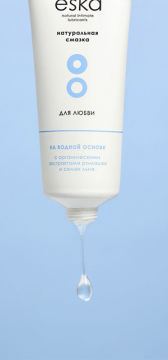 Eska - water-based lubricant, 75 ml
19,50 USD
Eska - water-based lubricant, 75 ml
19,50 USD
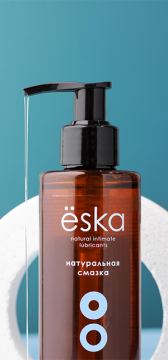 Eska - water-based lubricant, 200 ml
42,40 USD
Eska - water-based lubricant, 200 ml
42,40 USD
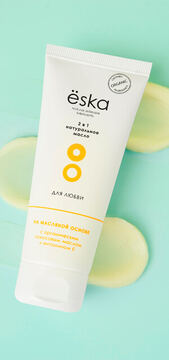 Eska - oil-based lubricant, 75 ml
23,10 USD
Eska - oil-based lubricant, 75 ml
23,10 USD
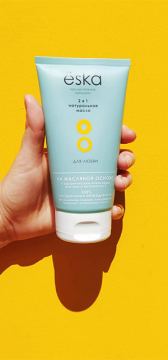 Popular
Eska - oil-based lubricant, 150 ml
38,90 USD
Popular
Eska - oil-based lubricant, 150 ml
38,90 USD
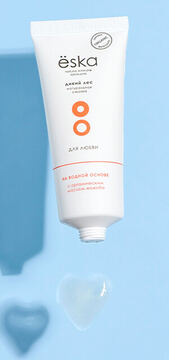 New
Eska - water-based lubricant Wild Forest, 75 ml
19,50 USD
New
Eska - water-based lubricant Wild Forest, 75 ml
19,50 USD
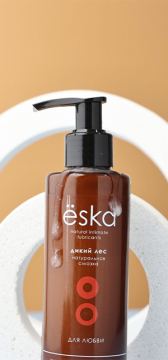 Eska - water-based lubricant Wild Forest, 200 ml
42,40 USD
Eska - water-based lubricant Wild Forest, 200 ml
42,40 USD
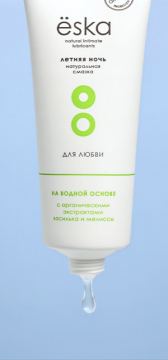 Eska - water-based lubricant Summer Night, 75 ml
19,50 USD
Eska - water-based lubricant Summer Night, 75 ml
19,50 USD
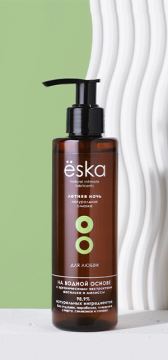 Eska - water-based lubricant Summer Night, 200 ml
42,40 USD
Eska - water-based lubricant Summer Night, 200 ml
42,40 USD
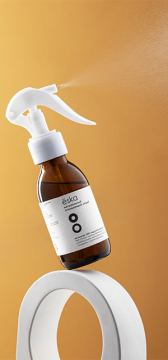 New
Eska - spray for cleaning and disinfecting sex toys
15,90 USD
New
Eska - spray for cleaning and disinfecting sex toys
15,90 USD